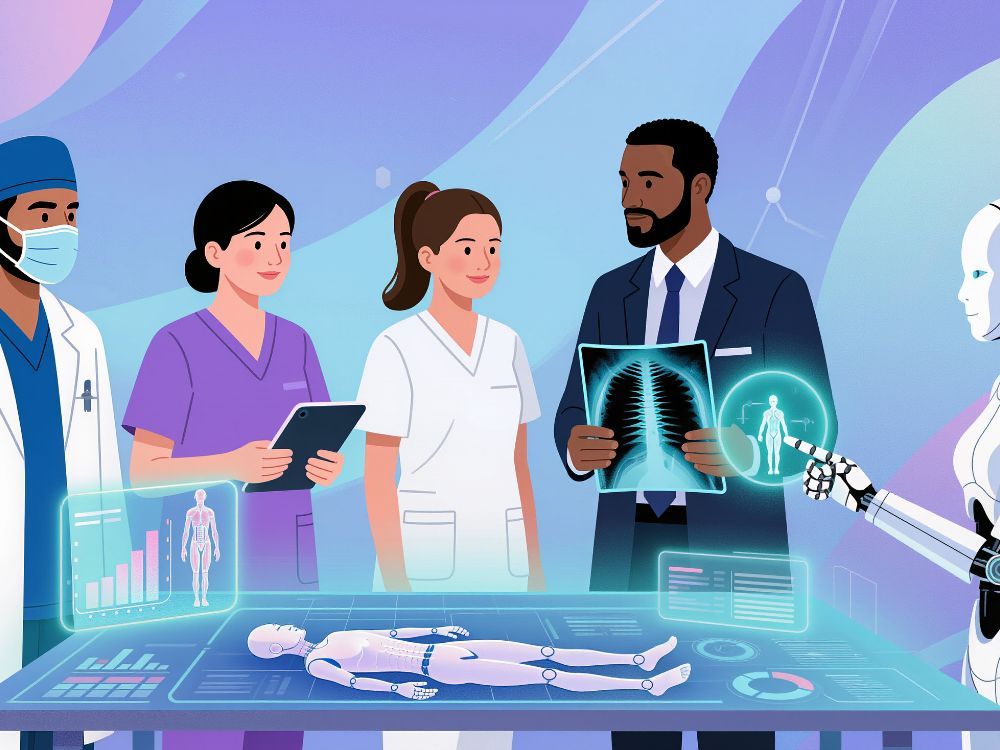In today’s fast-evolving healthcare landscape, the demand for skilled, adaptable, and compassionate professionals has never been higher. Hospitals, clinics, and care facilities are no longer looking for just degrees or certifications—they seek individuals who can keep pace with medical innovations, patient expectations, and new care standards.
But here’s the challenge: many healthcare workers, from nurses to technicians, often find themselves struggling to stay updated with changing industry requirements. That’s where healthcare recruitment agencies step in—not just as job placement partners, but as career growth enablers through skills development programs.
This synergy of recruitment and continuous learning is redefining how healthcare professionals prepare for and thrive in their careers.
The Evolving Role of Healthcare Recruitment Agencies
Traditionally, healthcare recruitment agencies were seen as middlemen—connecting hospitals with candidates and filling vacancies quickly. While that function remains crucial, the best agencies have evolved far beyond that transactional model.
Today, modern healthcare recruitment agencies act as talent developers. They don’t just place candidates—they nurture them, helping healthcare professionals sharpen their skills, improve employability, and advance their careers through structured development programs.
These agencies now partner with hospitals, universities, and training institutions to offer upskilling opportunities that align with the real needs of the industry. This shift benefits everyone: employers get more capable staff, and healthcare workers gain confidence, better pay, and a stronger sense of purpose.
Why Skills Development Matters in Healthcare
Healthcare is one of the world’s most dynamic sectors. New medical technologies, digital tools, and care standards are emerging every year. Without continuous learning, even experienced professionals risk falling behind.
Here’s why skills development is so critical:
- 🏥 Rapid Technological Advancements: From telemedicine and AI-assisted diagnostics to robotic surgery, technology is transforming patient care. Healthcare professionals must understand and adapt to these innovations.
- 📈 Growing Patient Expectations: Patients today expect personalized, efficient, and empathetic care. Soft skills like communication, empathy, and cultural awareness are as vital as clinical expertise.
- 👩⚕️ Global Mobility: Healthcare professionals are increasingly seeking international opportunities. Skills development programs help them meet global standards and certification requirements.
- 💼 Career Progression: Continuous learning boosts confidence, competence, and eligibility for senior or specialized roles.
A healthcare recruitment agency that invests in skills training ensures its candidates are future-ready, not just job-ready.
How Recruitment Agencies Integrate Skills Development
Let’s explore how the best healthcare recruitment agencies weave skills development into their core services:
1. Personalized Career Assessments
Before recommending training, agencies often assess a candidate’s current skill set, strengths, and career goals. For instance, a registered nurse looking to move into ICU care might need advanced critical care certification. A medical assistant might benefit from training in electronic health record (EHR) systems.
By identifying skill gaps early, agencies can tailor learning paths that fit individual needs rather than offering generic programs.
2. Partnerships with Accredited Training Providers
Top-tier agencies collaborate with medical universities, online learning platforms, and accredited institutions to deliver high-quality professional training.
Examples include:
- CPR and Advanced Life Support (ALS) courses
- Specialized nursing certifications (oncology, pediatrics, critical care)
- Health IT systems training
- Leadership and management programs for senior roles
These partnerships ensure that healthcare workers earn credentials recognized by employers locally and internationally.
3. Mentorship and Coaching Programs
Recruitment agencies increasingly pair candidates with mentors—experienced healthcare professionals who offer guidance, advice, and real-world insight.
Imagine a newly qualified nurse being coached by a senior practitioner who’s worked in a busy emergency department for a decade. That mentorship can accelerate learning and instill confidence that no classroom course could match.
4. Soft Skills and Communication Workshops
Healthcare isn’t just about medical knowledge—it’s about human connection. Agencies are incorporating workshops on:
- Patient communication
- Emotional resilience
- Cultural competence
- Team collaboration
- Conflict resolution
These skills directly improve patient satisfaction and workplace harmony—two key performance indicators in modern healthcare systems.
5. Digital and Technological Upskilling
As digital transformation sweeps through healthcare, agencies are helping candidates stay ahead by offering training in:
- Electronic health record (EHR) systems
- Telemedicine tools
- Healthcare data privacy (HIPAA compliance)
- AI-assisted diagnostic platforms
By mastering these digital tools, professionals become indispensable to employers seeking efficiency and innovation.
A Real-Life Example: Transforming a Nurse’s Career Path
Consider the story of Amira, a registered nurse in the UK who struggled to move from general ward duty to intensive care. Despite years of experience, she lacked the specialized certifications required for critical care roles.
When Amira connected with a healthcare recruitment agency offering skills development support, things began to change.
The agency helped her:
- Identify required ICU qualifications.
- Enroll in an online Advanced Life Support course.
- Get paired with a mentor already working in an ICU unit.
- Receive interview and communication coaching.
Within six months, Amira not only secured a position in intensive care but also gained the confidence to handle complex cases. Today, she mentors junior nurses through the same agency’s program—proving how skills development can create a cycle of empowerment.
The Benefits for Employers and Healthcare Institutions
The impact of these programs goes beyond the individual—it transforms entire healthcare organizations.
1. Higher Quality of Care
When staff are well-trained and continuously improving, patient outcomes naturally rise. Skilled professionals make fewer errors, communicate more effectively, and provide safer, more compassionate care.
2. Reduced Turnover Rates
Employees who feel supported and invested in are more loyal. By working with agencies that prioritize professional growth, healthcare institutions experience lower turnover and stronger team morale.
3. Faster Onboarding and Adaptation
When candidates arrive with relevant training and certifications already in place, onboarding becomes smoother and faster. That’s a major advantage for hospitals under staffing pressure.
4. Positive Brand Reputation
Partnering with recruitment agencies that emphasize skills development enhances a healthcare organization’s brand. It signals a commitment to quality, innovation, and people development—values patients and professionals both respect.
Building Trust Through Expertise and Ethical Practice
Under the E-E-A-T framework (Experience, Expertise, Authoritativeness, Trustworthiness), it’s clear that healthcare recruitment agencies must maintain high ethical and professional standards.
This includes:
- Ensuring transparency in training programs and certifications.
- Providing accurate information about career pathways.
- Respecting the privacy and dignity of candidates.
- Working only with reputable healthcare institutions.
By doing so, agencies don’t just fill positions—they build trust-based partnerships that sustain long-term growth for all parties involved.
The Future of Healthcare Recruitment and Skills Development
The future of healthcare recruitment lies in integrated talent ecosystems—where training, placement, and career progression are seamlessly connected.
We’re already seeing trends such as:
- Microlearning platforms offering on-demand healthcare modules.
- Virtual reality simulations for clinical training.
- AI-based skill assessment tools for personalized learning paths.
- Global mobility programs that prepare professionals for international healthcare careers.
Healthcare recruitment agencies that embrace these innovations will continue to shape the workforce of tomorrow—ensuring that patients everywhere receive the best possible care.
Conclusion: Empowering Healthcare Professionals for a Better Tomorrow
At its heart, healthcare is about people—those who give care and those who receive it. By investing in skills development programs, healthcare recruitment agencies are doing far more than filling job vacancies—they’re building stronger professionals, improving patient outcomes, and driving the future of global healthcare.
The message is clear: continuous learning is not optional; it’s essential.
For healthcare professionals, the takeaway is simple yet powerful—align yourself with recruitment agencies that invest in your growth, not just your placement. Every new skill you acquire doesn’t just advance your career; it elevates the quality of care for every patient you touch.
If you’re a healthcare worker looking to advance your career, don’t wait for opportunity—create it through learning. Seek out a recruitment agency that prioritizes your professional development. Because when your skills grow, so does your impact on the world of healthcare.





